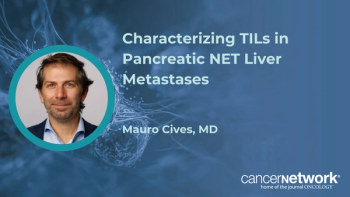
New Study Looks at Selumetinib for Treating Differentiated Thyroid Cancer
Interim results are in from a study evaluating whether adding selumetinib to RAI improves complete response, irrespective of MAPK pathway alterations.
Interim results from a phase III study suggest that adding selumetinib to postoperative radioactive iodine (RAI) may not improve the complete response rate (CRR), irrespective of the presence of mitogen-activated protein kinase (MAPK) pathway alterations, in patients with differentiated thyroid cancer. However, assessing the efficacy of other MAPK pathway inhibitors may be warranted in patients with thyroid cancer with MAPK pathway alterations, the investigators
“It remains possible that other treatment schedules or more stringent patient selection may translate into a benefit using this paradigm. The study's main benefit is the formal description of a thyroid cancer patient population at high-risk for biochemical and structural recurrence within 18 months from their initial treatment with RAI,” said
RAI remains among the most commonly used targeted therapies in the adjuvant setting post-thyroidectomy for high-risk patients, Paul told Cancer Network. For this reason, he said, understanding the biological basis for increasing its efficacy should remain a major focus of endocrine oncology.
Paul said a pilot study published 5 years ago raised the possibility that selumetinib, a selective MAPK pathway antagonist, had the potential to reverse the refractoriness to RAI of some metastatic thyroid cancer tumors. This hypothesis was welcomed news because the MAPK pathway is altered in approximately 70% of papillary thyroid cancers, which are the most common type of thyroid cancers, according to Paul.
The phase III, randomized, placebo-controlled ASTRA study examined the CRR with short-course selumetinib plus adjuvant RAI in patients with differentiated thyroid cancer. The results of the first 157 of 233 patients who completed the enrollment procedure were presented at the 88th Annual Meeting of the American Thyroid Association (ATA) on October 6 in Washington, DC.
Lead study author
“While the study results failed to demonstrate [a] benefit with selumetinib, the trial did validate pathologic criteria that identifies a higher risk cohort of thyroid cancer patients for whom improving the effectiveness of RAI is necessary. Ongoing subset analyses from the ASTRA study are providing critical insights into how future trials may be optimized,” Ho told Cancer Network.
Newsletter
Stay up to date on recent advances in the multidisciplinary approach to cancer.












































